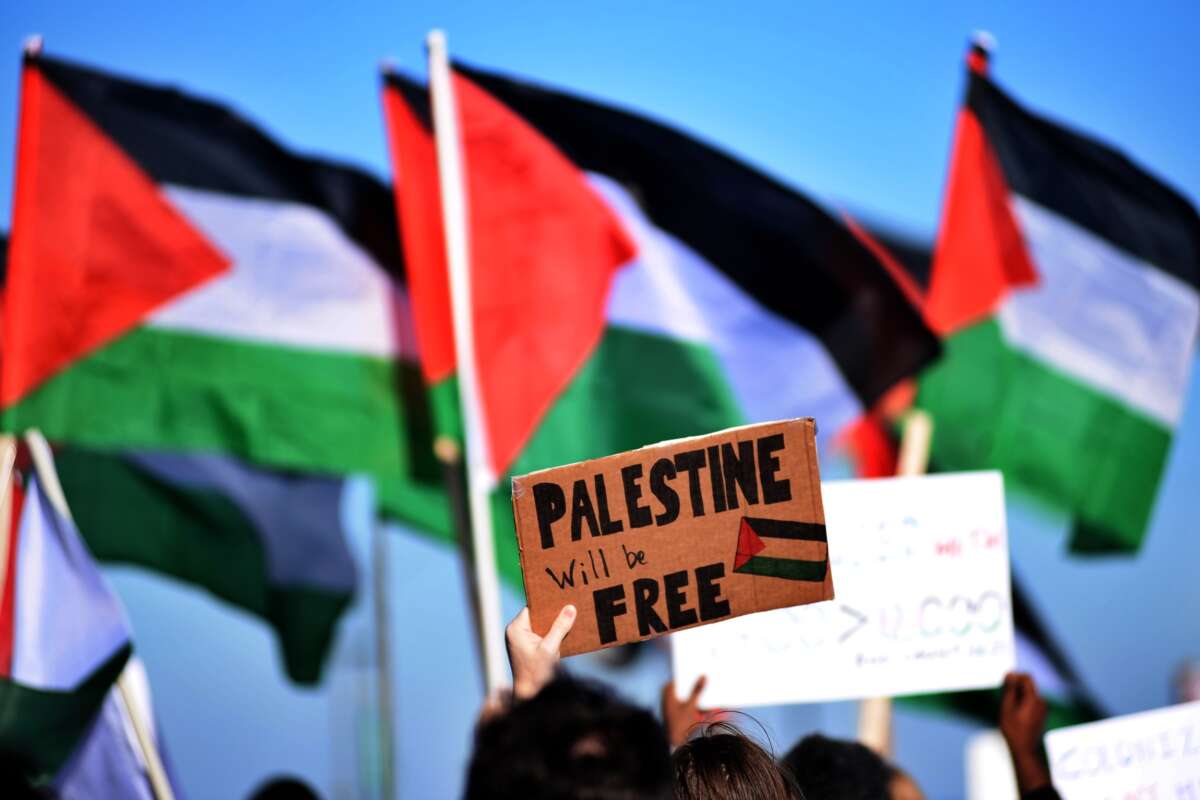A survey published this week by the Anti-Palestinian Racism Research Group showcases how anti-Palestinian racism amid Israel’s genocidal attacks on Gaza has affected the mental health of Palestinian Americans and their allies.
The organization, which describes itself as consisting of “researchers, physicians, and psychologists who are committed to empirically studying the impact of anti-Palestinian racism on individuals and communities across all sectors of civil society,” surveyed around 1,200 individuals across the U.S. The poll was authored by four medical doctors at the University of California-San Francisco.
Only about 27.5 percent of the poll’s respondents said they were Palestinian, with about 35.8 percent saying they were Arab American. The poll reveals that bigotry and racism has not only been directed at Arab and Palestinian Americans but also their allies, with respondents saying they have experienced harassment, oftentimes online, for their solidarity with Palestinians in Gaza.
According to the survey’s findings, 64.6 percent of Palestinians and their allies in the U.S. have experienced racism directly, with 63.4 percent saying they had been silenced, excluded, harassed, defamed, or threatened with physical harm while advocating for those living in Gaza. Nearly 9 in 10 respondents (87.9 percent) said they had also witnessed others experiencing anti-Palestinian racism.
Respondents overwhelmingly reported feeling fear and isolation due to their support for Palestinians in Gaza. Three-quarters of those surveyed (73.5 percent) said they felt “alone” or “isolated” because of their concern about Palestinian rights. More than half (55.3 percent) of respondents also expressed being afraid to discuss Israel’s genocide in Gaza or Palestinian rights in general, with another 10.7 percent saying they were possibly afraid or not sure if they were.
Overall, more than 7 in 10 respondents (71.2 percent) said their mental or physical health had been harmed at least some of the time due to their solidarity.
“Taken together, our findings suggest that anti-Palestinian racism affects many more people than previously expected, is highly prevalent in many sectors of society, is having a deleterious impact on people’s health and wellness, and is resulting in increased levels of isolation, fear, and intimidation,” the report stated. “We believe these findings suggest that anti-Palestinian racism is a pervasive phenomenon, affects Americans of diverse racial, ethnic, and religious backgrounds, and deserves special attention to combat the negative impacts on society, our communities, and individual health and well-being.”
Lama Rimawi, one of the authors of the report, said the survey was critical to developing a true understanding of how anti-Palestinian sentiment and bigotry is affecting Palestinians and their supporters across the country.
“Because anti-Palestinian racism is under-recognized and under-studied, many people were unaware of what they were experiencing and felt isolated,” Rimawi said in a press release. “These results demonstrate that anti-Palestinian racism is affecting much larger numbers of people than previously realized with potentially significant negative health effects.”
“Anti-Palestinian racism is pervasive and has a negative impact on the physical and emotional health of people experiencing it,” said Jess Ghannam, another author of the study. “Without more education and protection, I am concerned about the long-term negative health consequences of anti-Palestinian racism on people and communities.”
The Anti-Palestinian Racism Research Group’s survey coincides with other reports that have showcased a rise in harassment and racism against Muslims living in the U.S., particularly in the months after October 7.
A report from the Council on American-Islamic Relations (CAIR), for example, documented over 8,000 complaints of harassment against Muslims over the course of 2023, a 56 percent increase from the previous year and the highest number of complaints recorded in the organization’s history. Around half of those complaints were from October, November and December.
“This dehumanization of Palestinians and Muslims by world leaders and our own government has led to a sharp increase in anti-Muslim and anti-Palestinian sentiment, discrimination, and violence against members of our community,” CAIR Los Angeles director Hussam Ayloush said.
